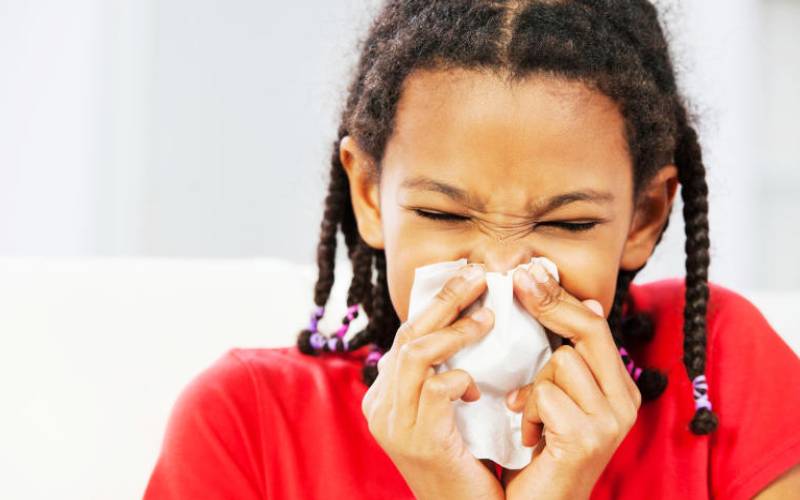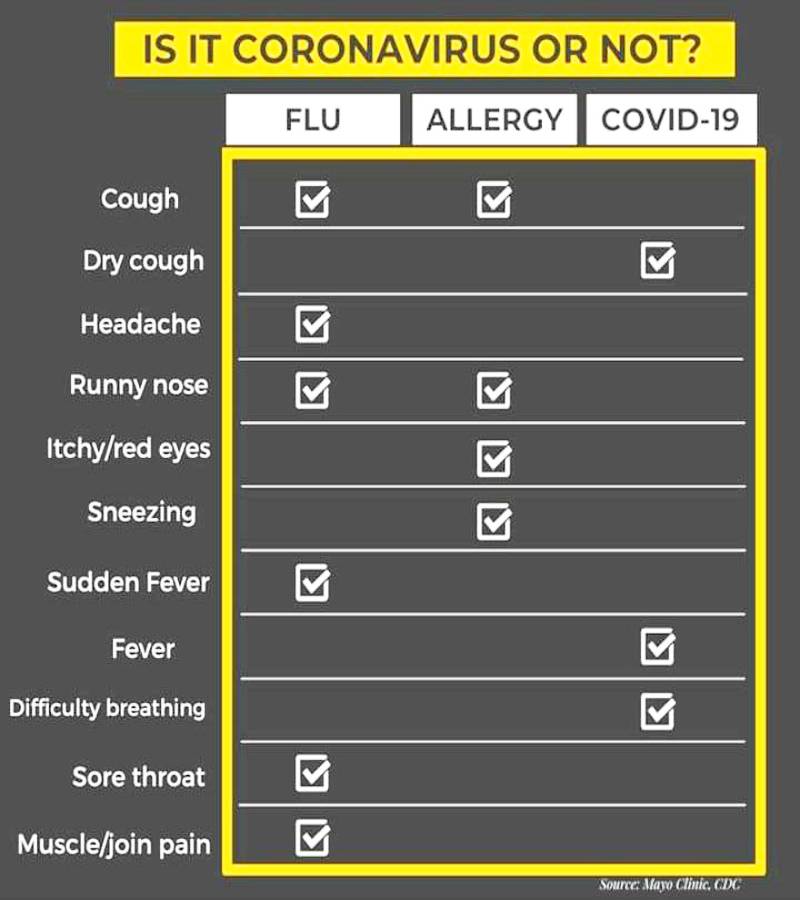
As the world grapples with the spread of coronavirus, myths and lies abound on what the virus entails.
For some, the common symptoms of a dry cough , sneezing and fever could simply mean allergies.
An article on the
Washington Post sought to clarify what is corona and what it is not.
The March 10 article says while allergies manifest through itchy, red, watery eyes; sneezing; runny nose and sometimes, coughing, those with such reactions should not panic.
Allergies, unlike the virus, are not contagious.
One of the main differences between the virus and allergies is the effect it has on the immune system.
Allergies should not trigger fevers or body aches.
Joo added that covid-19 patients may have nasal congestion.
The article further explained that the symptoms may vary from one patient to another, depending on their immunity.
The
World Health Organization found that only about five per cent of the coronavirus patients in China had nasal congestion and about 14 per cent had a sore throat.
How to stay safe
The experts advise one to take a shower as soon as they get home to remove any pollen.
They add that in case of any more symptoms, one should watch out for fever as the main coronavirus symptoms are difficulty breathing, severe cough and a high fever.
Goodman suggests that to cut travel, one may simply call the hospital and talk to a healthworker who may help them determine if they need to come in for a specialised checkup.
Washing hands has been reported to be among the top ways to stay safe and curb coronavirus spread. But how long should one wash their hands? According to
Today, it takes 20 seconds, the same time it takes one to sing the Happy Birthday song twice.
Goodman says to wash using soap, warm water and to scrub well.
“Sometimes fear can be more dangerous than a virus,” Goodman added. “People may put themselves and other people in danger.”
Bold Reporting Takes Time, Courage and Investment. Stand With Us.
- Unlimited access to all premium content
- Uninterrupted ad-free browsing experience
- Mobile-optimized reading experience
- Weekly Newsletters
- MPesa, Airtel Money and Cards accepted

